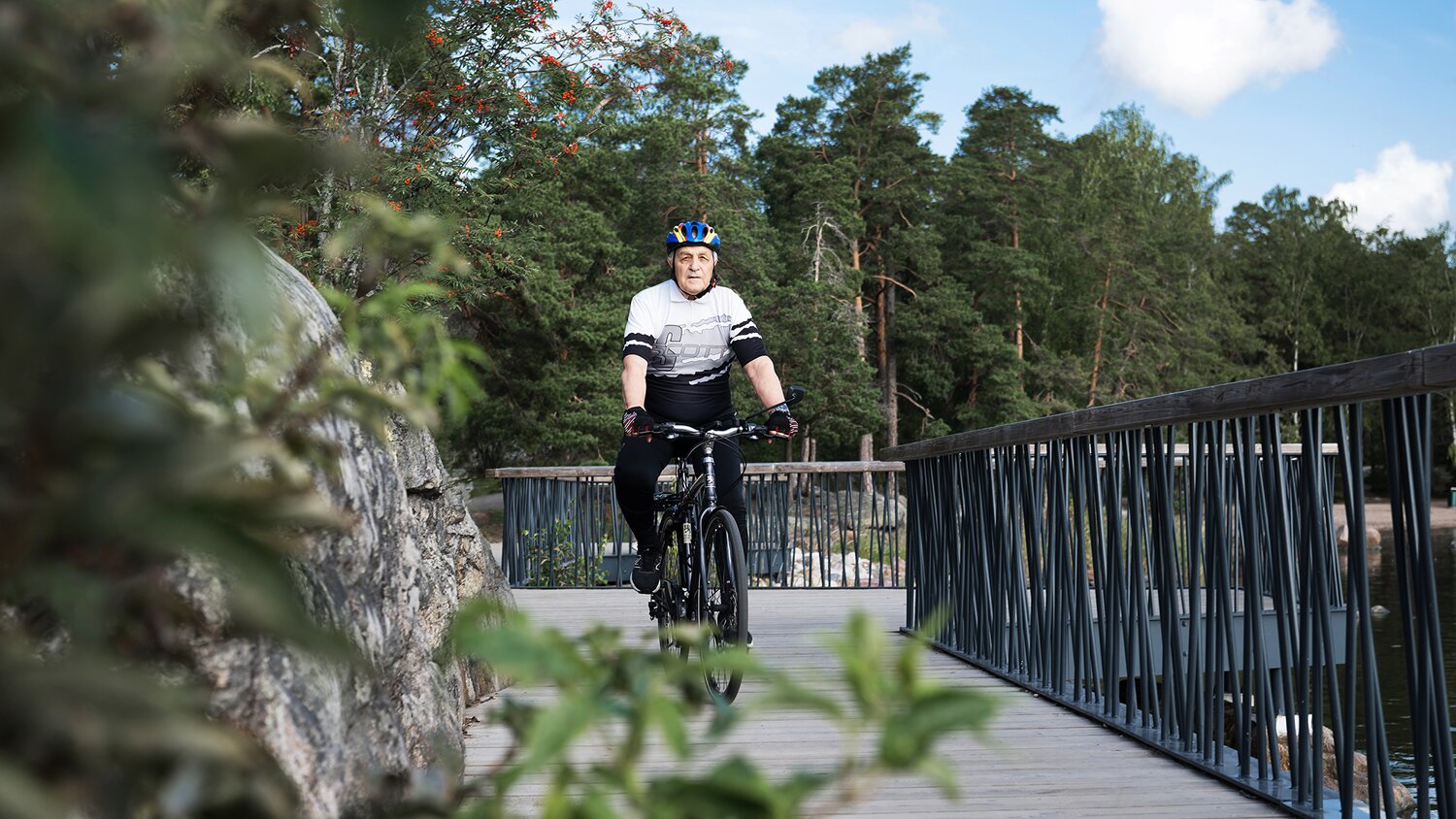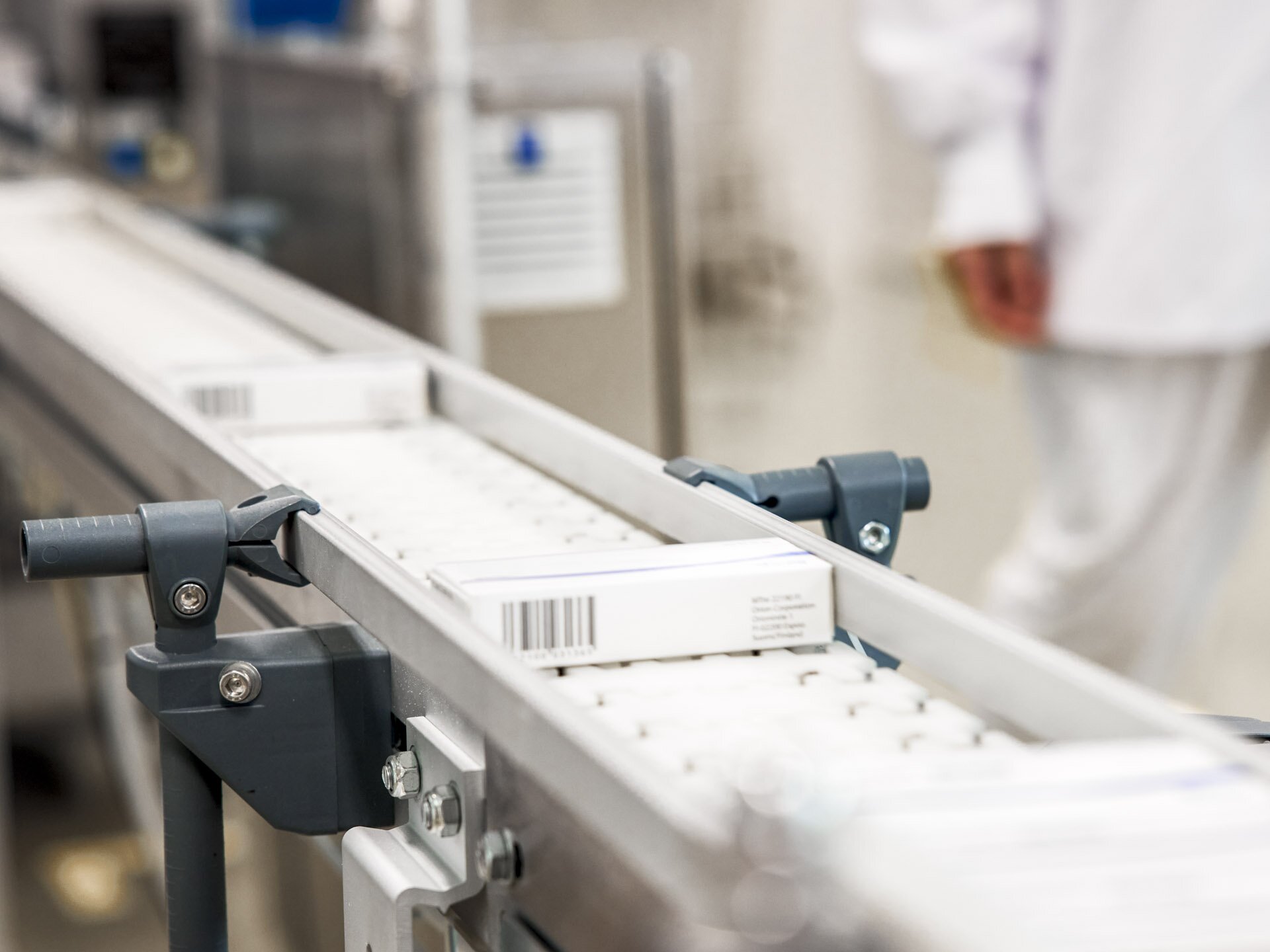Lessons – “Don’t wait for symptoms of prostate cancer”
“I was quite competitive when I was younger. For example, when I played sports, I always felt the need to perform. Now I have learnt that I don’t always need to be number one. The most important thing is that I can feel satisfied with my situation.
My father and his brother died one after the other in 2003. Both had prostate cancer, which had not been diagnosed, listed on their death certificates as one of the causes of death. I spent a long time monitoring my own state of health and looking out for symptoms of cancer. I assumed that if I got cancer, I would notice. In 2009, when I went for a PSA test just to be on the safe side, I still had no symptoms even though my levels were elevated.
I have told my five brothers not to wait for symptoms and to have regular PSA tests anyway. One of my brothers has developed the disease, but it's still at a well-behaved stage. All my brothers have thanked me for forcing them to get tested.
Difficult moments – “Reduced virility can be a sensitive issue”
After I had surgery for my cancer in 2010, the urologist said I was cured. Five years later, however, my PSA levels started to rise. My cancer recurred in 2015, 2017 and 2020. Now I have got used to the idea that I will never be cured of this disease.
In the light of current knowledge, other less radical options would have been available for me instead of surgery. The operation affected my virility, which has lowered my quality of life. A decline in virility is a very difficult issue for many men and I know that it can also lead to self-destructive behaviour. I didn’t react as strongly as this, but it was a sensitive issue for me, too, at first. I work as a peer support worker, and after I completed my peer support training I have stopped feeling ashamed about it.
My illness has changed my priorities in life. I’ve been through some tough treatments, and at times my medication makes me really tired. Sometimes I get hot flushes at night. I’ve had to accept all of these things as well. Nowadays, I think that I would have lost my virility at some point anyway.
Hope – “I may never be cured of cancer, but I’m not going to die from it”
From time to time, I experience moments of depression due to my cancer. It’s at these times that I ask, what’s wrong with me, why can’t I beat this? When I have thoughts like this, exercise often helps to ease my mind. In the winter I go cross-country skiing, and in the summer I go cycling. I also go to the gym, go aqua jogging and do exercises in the therapy pool.
Once I have had a sauna and a shower and put on clean clothes after a long bike ride my mood is much lighter. It feels rewarding to be able to do something that is good for me.
I don’t think I'll ever be cured of cancer. On the other hand, I don’t think I’m going to die from it either. I have confidence in Finnish cancer research and treatment and I believe that my current treatments will keep my prostate cancer under control.

Support – “Talk about your cancer diagnosis – even if it is to the dog”
I was cross-country skiing in the north when I met a peer support person who convinced me to get involved in the activities as well. When I share my experiences with my fellow sufferers it also helps me to cope.
Sometimes I do shifts at the OLKA service point at the Meilahti Tower Hospital in Helsinki. OLKA refers to coordinated organisation and volunteering activity at hospitals. I stand around in the lobby wearing a green vest, which tells people that they can come and talk to me.
Every now and then I am approached by a woman in distress: her husband has shut down like a clam after his prostate cancer diagnosis and she doesn’t know what to do. In these situations, I hand over some leaflets and say that she should try and get her husband to read them, as this might help him to open up a bit.
I know that some people find it difficult to deal with illness. But if you have been diagnosed with cancer, dealing with things on your own is the worst thing you could do. If you can’t talk to a loved one or spouse, you should talk to anyone. Even the dog. Of course, a person is always better, because they can respond.”
Prostate cancer
- What is prostate cancer? Prostate cancer is the most common form of cancer among men. More than 5,000 men in Finland are diagnosed with it every year. The average age at diagnosis is around 70. Being overweight, eating a high-fat diet and smoking can increase the risk of getting the disease.
- Symptoms. Prostate cancer can have similar symptoms to benign prostatic hyperplasia (BPH). These include difficulty passing urine, increased need to urinate or urinary tract infections. In prostate cancer, the symptoms develop quickly, while in BPH they usually take years to develop. Blood in the urine or semen can also be a symptom and its cause should be investigated.
- Treatment. This is determined by the size of the cancer, whether it has spread anywhere else and the age of the patient. Options may include hormone therapy, radiotherapy, surgery and monitoring. With a localised cancer tumour, the prognosis is good. 90 per cent of patients survive at least 10 years after diagnosis.











